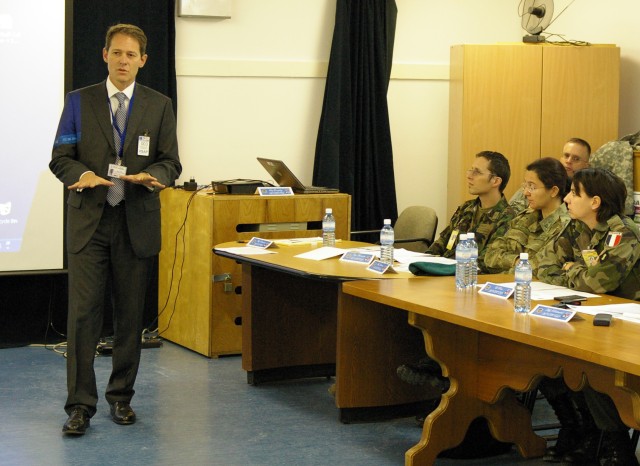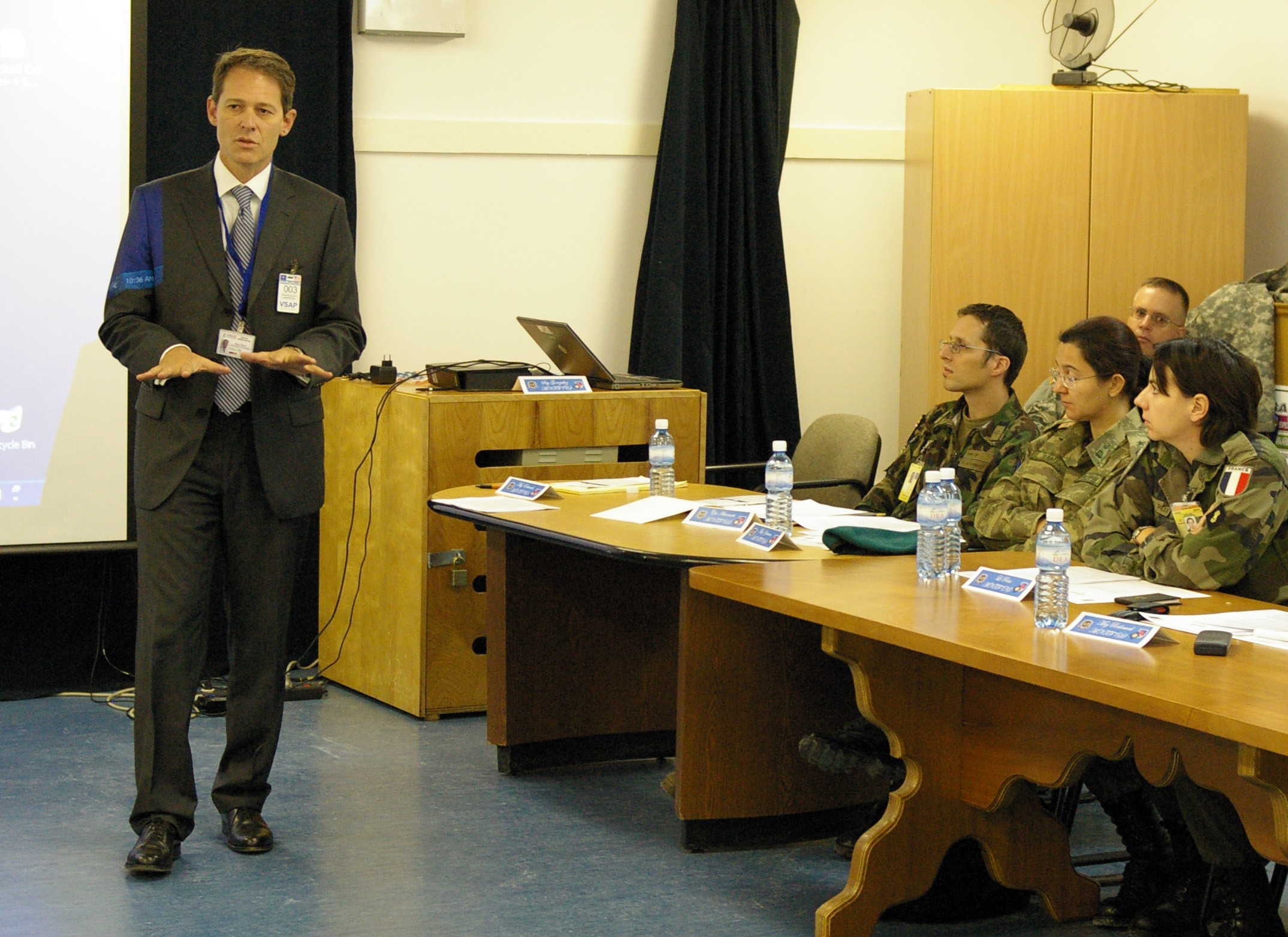Working in a multinational environment, the many militaries of KFOR 12 (Kosovo Forces) face a tangled web of law. Legal advisers help guide KFOR through the web. "There are currently Solders from 32 nations here in Kosovo," said Col. Anne Ehrsam-Holland, the deputy chief legal adviser for KFOR. "Particularly when there is a large contingent of soldiers, there are many country-specific legal issues that arise. It is virtually impossible for any one attorney to have the expertise to handle country-specific issues for so many countries." KFOR's legal advisers are called "LEGADs," which is a label customarily attached to lawyers who advise commanders in the field in NATO operations and within the countries of many of the nations participating in NATO peacekeeping, Ehrsam-Holland said. On Nov. 5, KFOR LEGADs came together at Camp Bondsteel for their monthly conference. Twelve nations were represented: Austria, Denmark, Finland, France, Germany, Hungary, Italy, the Netherlands, Sweden, Switzerland, Turkey, and the United States. Mark Walter of the United States Agency for International Development spoke at the conference about economic development in Kosovo and USAID's Kosovo Private Enterprise Program. Lt. Col. John C. Wallace of the LEGAD headquarters staff presented information about Kosovo's new law on weapons. The monthly conferences provide a chance for the LEGAD headquarters to inform the LEGADs operating in Kosovo about legally related issues and changes that may impact the multi-national task forces (MNTF), Ehrsam-Holland said. "It is also an opportunity for the hosting legal office to talk about current hot issues at their MNTF and for all of the LEGADs to raise issues that need to be addressed by the group," she said. In Multi-National Task Force-East (MNTF-E), legal issues come in many varieties, said Col. James T. "Tim" Cocanougher, deputy command judge advocate for MNTF-E. "The JAG shop is broken out into four main areas: Operational Law, Military Justice, Legal Assistance and Administrative/Fiscal Law," he said. "Each area has its own set of most asked legal questions." In Operational Law, Cocanougher said, "a major issue has been and will remain Rules of Engagement." ROE is an issue throughout KFOR, Ehrsam-Holland said. "The ROE change as the nature of a mission changes," she said. "It is very important that the soldiers on the ground are aware of any new limitations or changes that might be put in effect as a peacekeeping mission, for instance, enters new stages, such as greater stability of the local infrastructure." The chief LEGAD for KFOR is Col. Michael Scholze of Germany. He is the primary legal adviser to COMKFOR. Col. Karl Hoch of Germany will be taking over as chief LEGAD in January 2010. Stationed at Film City in Pristina, the chief LEGAD and the headquarters staff handle legal issues that include operational and contract issues to disciplinary matters and international agreements, Ehrsam-Holland said. The LEGAD headquarters staff wears a special patch that displays their slogan, "Operating in the Grey Area." "The nature of some of the legal guidance we rely on in KFOR's operational area is unusual," Ehrsam-Holland said. "One typically might hear someone refer to the black letter of the law, meaning the law is often clearly defined or, in other words, black and white. This is not always so in the current KFOR operational area, hence the reference to gray." LEGADs throughout KFOR will face new challenges as KFOR's mission evolves. "KFOR is constantly monitoring changes in things that may affect the freedom of movement and evaluating the overall situation to ensure a safe and secure environment, which is KFOR's primary mission as a third responder," Ehrsam-Holland said.
KFOR legal advisors help untangle the law
By Sgt. 1st Class Michael Hagburg 116th Public Affairs DetachmentDecember 10, 2009


Social Sharing